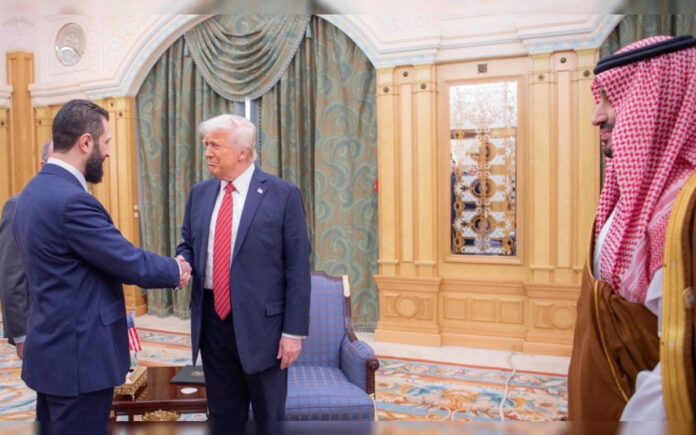Washington: The Trump administration on Friday issued orders that effectively ease sanctions on Syria, fulfilling President Donald Trump’s recent commitment to relax measures aimed at aiding the country’s reconstruction after years of devastating civil conflict.
The Treasury Department released a general license, known as GL25, authorizing transactions involving the interim Syrian government led by President Ahmed al-Sharaa, alongside the central bank and state-owned enterprises. This move effectively lifts sanctions under the Syrian Sanctions Regulations, according to an official Treasury statement.
“GL25 will enable new investment and private sector activity consistent with the President’s America First strategy,” the statement said.
In addition, Secretary of State Marco Rubio issued a 180-day waiver under the Caesar Act to ensure that sanctions do not hinder investment and to support essential services such as electricity, energy, water, sanitation, and humanitarian efforts.
“Today’s actions represent the first step in delivering on the President’s vision of a new relationship between Syria and the United States,” Rubio said, emphasizing that Trump expects sanctions relief to be followed by tangible action from the Syrian government.
Following Trump’s meeting with Sharaa last week, the White House said the president requested several conditions in exchange for easing sanctions, including the departure of all foreign militants from Syria, the deportation of what Trump called Palestinian terrorists, and cooperation in preventing ISIS’s resurgence.
“President Trump is providing the Syrian government with the chance to promote peace and stability, both within Syria and in Syria’s relations with its neighbors,” Rubio added.
Syria Welcomes Sanctions Waiver
The Syrian Foreign Ministry welcomed the sanctions relief early Saturday, calling it a “positive step in the right direction to alleviate the country’s humanitarian and economic suffering.”
Syria expressed its readiness to cooperate with other nations “on the basis of mutual respect and non-interference in internal affairs,” adding that it views “dialogue and diplomacy as the best path to building balanced relations.”
Most U.S. sanctions on Syria were originally imposed in 2011 on the government of President Bashar al-Assad and key individuals after the civil war began. Sharaa, who led militias that overthrew Assad in December, was previously sanctioned under the name Abu Muhammad al-Jawlani.
Also Read | Hunger, Bombs, and Grief: One Family’s Reality in Gaza’s Ruins
The new general license explicitly names Sharaa and several entities authorized for transactions, including Syrian Arab Airlines, the Central Bank of Syria, multiple banks, state oil and gas companies, and the Four Seasons Damascus hotel.
Trump’s decision to lift sanctions, reportedly influenced by Saudi Arabia’s crown prince, marks a significant shift in U.S. policy. The president announced the change prior to a brief meeting with Sharaa in Riyadh last week.
Also Read | U.S. Vows More Sanctions on Cuba Over Crackdown on Dissidents
Easing sanctions is expected to facilitate greater involvement by humanitarian organizations in Syria and encourage foreign investment and trade to aid reconstruction efforts. However, longstanding U.S. sanctions have isolated Syria from the global banking system and restricted many imports, complicating recovery efforts. The threat of re-imposition of sanctions may also deter private-sector investment.
The U.S. initially designated Syria as a state sponsor of terrorism in 1979 and has added multiple sanction layers since, especially after the 2011 uprising against Assad’s regime.



